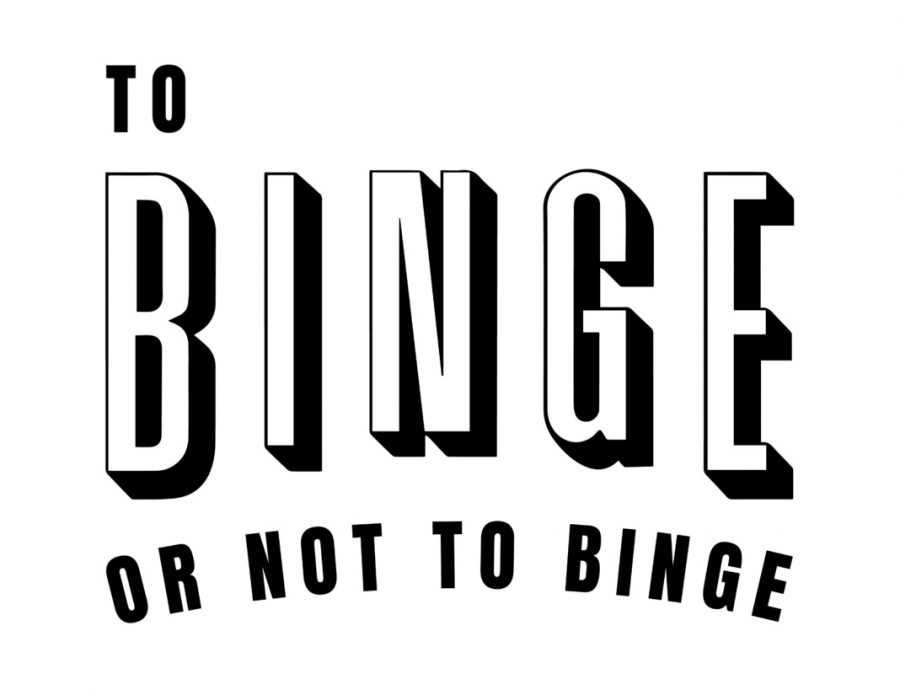To Binge or Not To Binge Episode 72: ‘Messiah’
(Graphic by Hannah Allred | The Daily Utah Chronicle)
March 10, 2020
Warning: This article contains minor spoilers for “Messiah.”
One of my most recent binges, the Netflix original series “Messiah,” is a philosophical dive into what it would mean if the second coming were to occur in today’s world.
“Messiah” first debuted on Jan. 1, 2020, and though it is a Netflix original, it has been overlooked in favor of other original series that debuted this year. But this thriller series from the mind of Michael Petroni should be on everyone’s watchlist. In addition to the show’s questioning of what a modern second coming would look like, the series also explores ideas around false prophets, the antichrist, religious terrorism, CIA and U.S. governmental intervention, modern immigration laws, the convergence of religious beliefs and the confrontation of an inevitable Judgment Day.
As any show that discusses religion would be, “Messiah” can be considered controversial — Jordan’s Royal Film Commission has asked that Netflix remove the show from streaming in the country. Yet, the show gracefully captures various elements from a multitude of religions, and it’s the characters’ interactions with each other as they try to make sense of their world that truly ensnare the audience’s attention. Despite living in a hectic world with a 24-hour news cycle and constant updates on tense situations from all over the globe, the religious setting of “Messiah” pushes the humanity of the characters forward. We must realize that in the end, we are all human — fallible but still capable of great accomplishments.
To Binge or Not to Binge?
Standing at just one season of 10 episodes, “Messiah” is, logistically, an easier series to binge-watch than other Netflix originals. Yet, watching this series is not something that can just be done passively. The show demands the viewer reflect on their own experiences with religion, and the mysteries that course throughout each episode leave the viewer on cliffhanger after cliffhanger as some questions are answered and even more pop up in their place.
The series opens in Damascus, Syria — here, we meet Al-Masih (Mehdi Dehbi), the titular character who may or may not be a messiah. This location also introduces us to Samer (Fares Landoulsi) and Jibril Hassan (Sayyid El Alami), two refugees who are some of Al-Masih’s first followers. Al-Masih preaches to a crowd in Damascus as a sandstorm of biblical proportions envelops the town, yet at the same time, the storm pushes ISIS out of the area. Shortly after the storm has dispersed, people of Damascus seem to be drawn to Al-Masih like a magnet, and his preachings persist throughout the 40-plus day length of the storm. When it clears, Al-Masih’s message that nothing will happen except what God has ordained garners him thousands of followers as he marches to the Israel border.
Other key players from the series include Aviram Dahan (Tomer Sisley), an Israeli interrogator who must navigate his more dangerous work while raising his daughter with his ex. In addition to the show’s setting in the Middle East, “Messiah” also takes us to a small town in Texas, where we meet a southern Baptist preacher, Felix Iguero (John Ortiz), his alcoholic wife Anna (Melinda Page Hamilton) and their epileptic daughter Rebecca (Stefania LaVie Owen). Although the series is titled “Messiah,” I almost view Eva Geller (Michelle Monaghan), a CIA agent who follows and tracks Al-Masih’s movements around the globe, to be the main character. Her path of grieving a lost husband, going through fertility treatments and caring for her aging father all while passionately dedicating herself to her work with the CIA is truly remarkable.
As the series progresses, we receive testimonials from followers and skeptics, witness several miraculous events and see the promulgation of Al-Masih’s message that he spreads the word of God. The specific God he follows remains unnamed, however, and Al-Masih takes beliefs and scripture from several religions, including Catholicism, Judaism and Islam. Additionally, true to the show’s modern setting, Al-Masih becomes an overnight sensation, and his popularity is only fueled by a 24-hour news cycle and viral social media posts.
As a student studying philosophy, I found the series’ discussion of religion to be incredibly fascinating. In our globalized world, it is important to be able to understand and have honest and respectful discussions with one another. While Al-Masih is the central figure in the series, the people around him must determine how to cope with their new reality, and it is in these humanizing moments that we can see true connection and unity. Al-Masih repeatedly asserts that he “walks among men” and that “history has ended.” At a time where life feels incredibly divided, his attempts to unify people and recognize the consequences of their actions is refreshingly humbling.
The series trailer asks, “Will he convert you or con you?” and the episodes frequently feature shots of an Oprah Winfrey quote, “You become what you believe,” which is scrawled on the wall of a diner that Eva frequents. These messages play into the religious intonations of the series, yet the moments where people are struggling to work together to understand their new world are where the series truly succeeds.
As the season progresses, the interconnected nature of our modern lives is reaffirmed through the intertwined lives of the primary characters that we meet over the course of the opening episodes. These characters seem to represent certain biblical figures and other religious leaders, but the mystery of the show begs us to consider whether we should trust what we believe or remain skeptical. Even when we think we’ve figured out the identity of the main players, “Messiah” continues to throw wrenches into our understanding — constantly introducing new mysteries and religious allusions until the very last moment as we’re left on a cliffhanger.
Best Episode
Each episode of “Messiah” is well-crafted and wonderfully thrilling, but my favorite episode was the fourth in the season, “Trial.” This episode’s title alludes to the story of Job, and throughout the episode, Al-Masih navigates the federal government and immigration laws, featuring a focus on the treatment of refugees within America. As Al-Masih testifies in court, I found his speech riveting and eerily reminiscent of today’s political climate. In addition to his testimony, the scenes of interrogation also provide intimate moments in which Al-Masih’s character strikes the balance between the lines of a messiah-figure and a religious fanatic. At this point in my binge-watching, I was finally hooked on the series and decided I could not turn away from this story.
Similar Shows
In terms of the narrative style of “Messiah,” the shows “Lost” and “Colony” are other similar options. For more content similarities, “The Path” and “Aquarius” have been noted as comparable shows.
Trigger Warnings
“Messiah” is rated as TV-MA for its language and sexual content. There are a few violent scenes, but they are short and to the point. The most divisive element of this show is its religious focus.
“Messiah”
5/5 Stars
Available to stream on Netflix
One season, 10 episodes, around 45 minutes each, approximately 7.5 hours









Michael castaneda • Mar 10, 2020 at 1:03 pm
Great article. Love the show. Hoping for a second season.